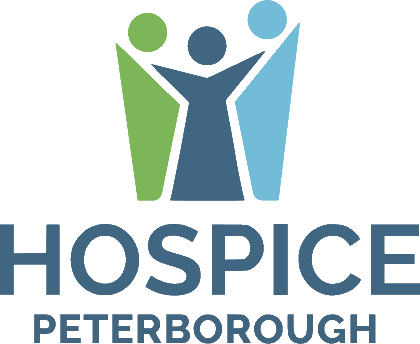News
Want to stay up to date with what’s happening at Hospice?
Subscribe to our newsletter:
Follow us on social media:
Recent News Articles
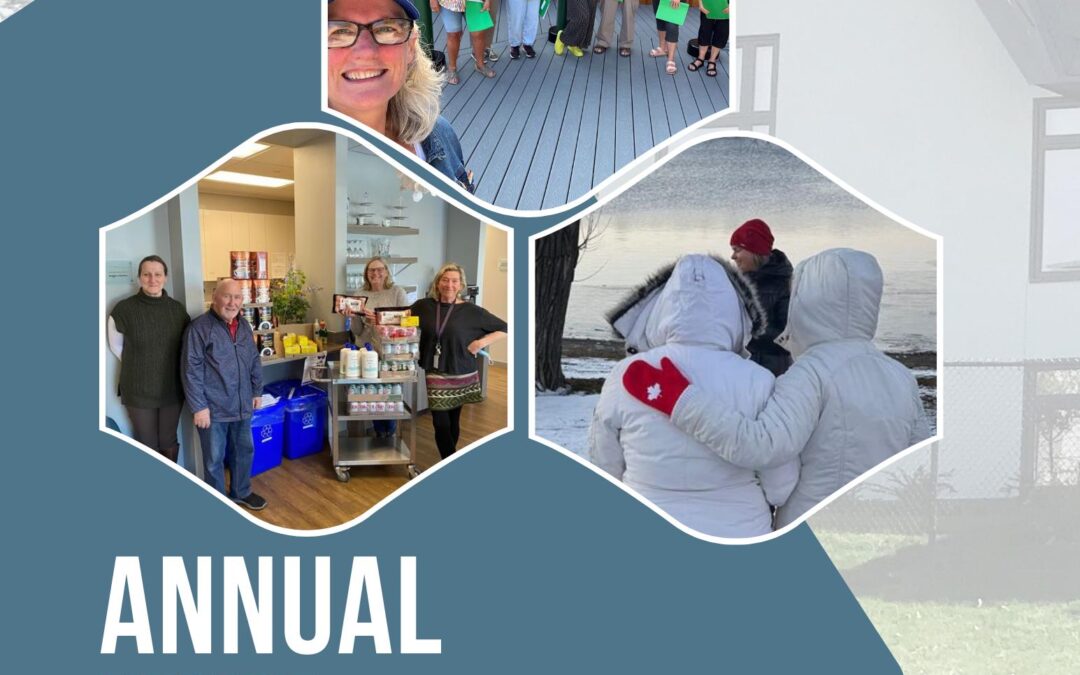
Celebrating a Year of Compassion: Our 2023-2024 Annual Report is here!
We are thrilled to announce the release of Hospice Peterborough's 2023-2024 Annual Report! Highlighting the organization's achievements, heartwarming stories, and significant milestones from the past year. Take a peek! You will...
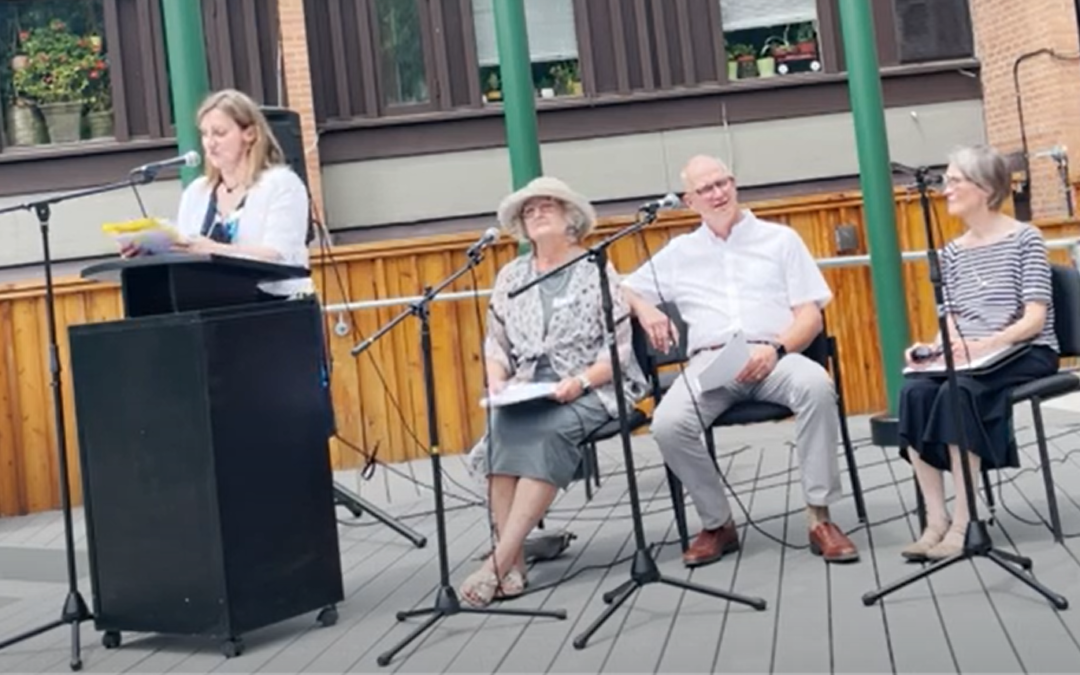
AGM Keynote Speaker Panel 2023-2024
On June 13, 2024 we held our 36th Annual General Meeting. We welcomed a panel of keynote speakers, Pat Knapp, Richard Johnston, Joan Higginson, and Linda Sunderland, all previous Executive Directors of Hospice Peterborough. The group shared their challenges and...
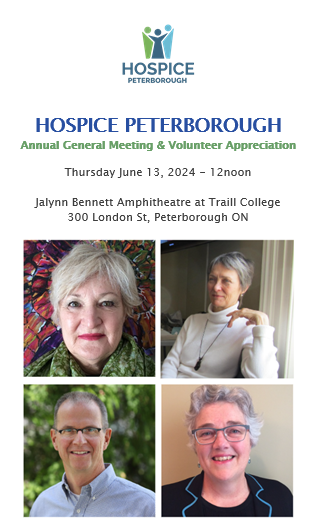
Hospice Peterborough Annual General Meeting – June 13, 2024
HOSPICE PETERBOROUGH Annual General Meeting & Volunteer Appreciation Thursday June 13, 2024 – 12noon Jalynn Bennett Amphitheatre at Traill College 300 London St, Peterborough ONWith Keynote Speakers: Pat Grant, Joan Higginson, Richard Johnston & Linda...
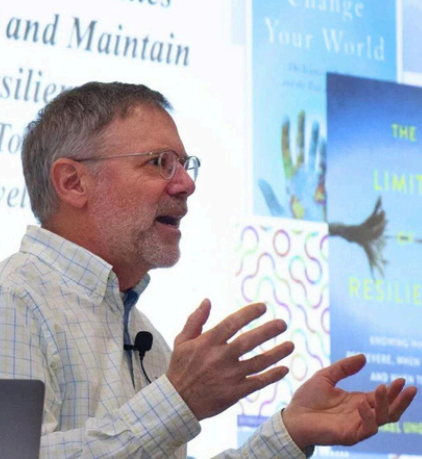
Second Annual Child & Youth Mental Health Symposium welcomes Dr. Michael Ungar as keynote speaker
Don shares reflections of his family's time using supports and services. The Herald Family Don (L), Jordon (top center) andMarnie (R) surround Jan. I write this on December 9th, 2022. It would have been her 78th birthday. She died at Hospice Peterborough on December...
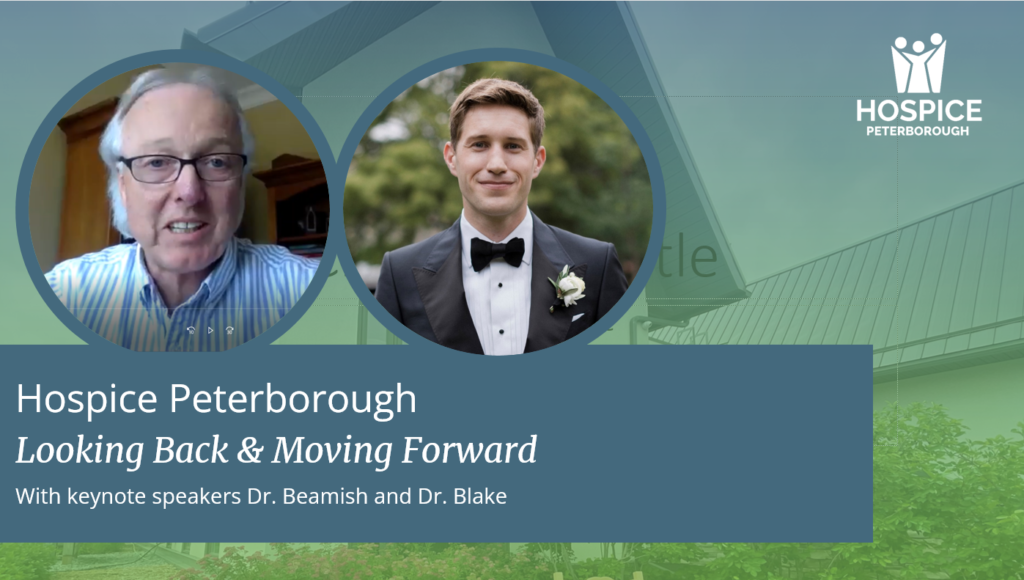
Watch our AGM
Missed our 2023 AGM? Watch it on Youtube now! Featuring keynote speakers Dr. Beamish and Dr. Blake on past, present and future of Hospice Peterborough. Watch it here.
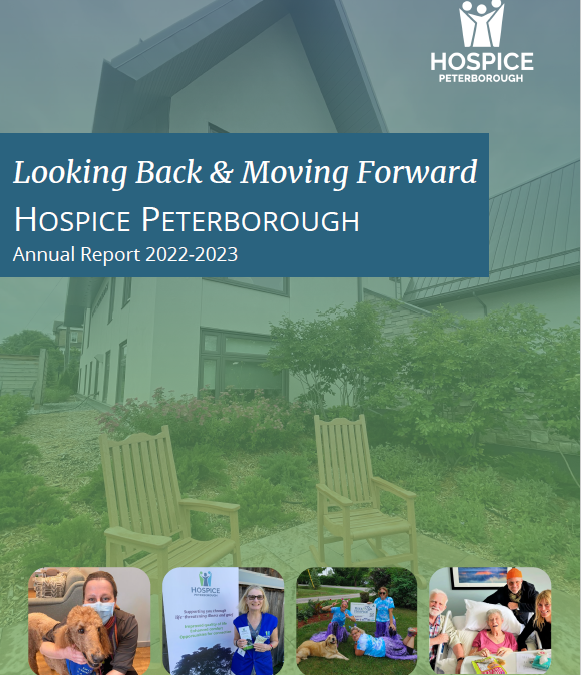
Celebrate the Successes of Our Previous Year!
Our 35th Annual General Meeting took place June 15th virtually. Keynote speakers Dr. John Beamish and Dr. Christopher Blake spoke on the past, present and future of Hospice Peterborough. We celebrated a year that wasn't without challenges but brought many moments of...

Board Directive Update Regarding Medical Assistance in Dying (MAID)
Throughout its growth and evolution, Hospice Peterborough has kept community and client needs and wishes as its guiding principles. Since Medical Assistance in Dying (MAID) was legalized in Canada in 2016 Hospice Peterborough has worked with a committee, staff,...
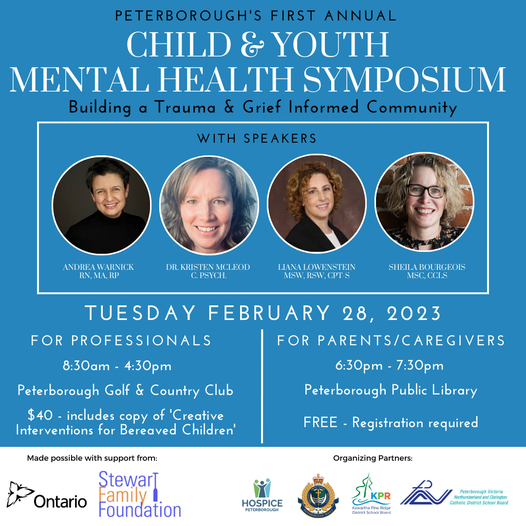
Child & Youth Mental Health Symposium
The inaugural Child & Youth Mental Health Symposium offers educational opportunities for professionals, and for caregivers, to build resources and tools for supporting children and youth in trauma and grief. Registration for professionals session is closed....
Reflections on my Career – David Kennedy
We can not hold a torch to light another’s path without brightening our own. – Ben Sweetland David Kennedy leaving Hospice Peterborough on his last day before retirement. There are significant moments in everyone’s life where it isn’t until later you realize the mark...
Caring in Life and Death
For 34 years Hospice Peterborough has demonstrated a collaborative community approach, strong leadership and good governance which has led the organization to become a respected leader in the delivery of hospice palliative and bereavement care across the province. In...
